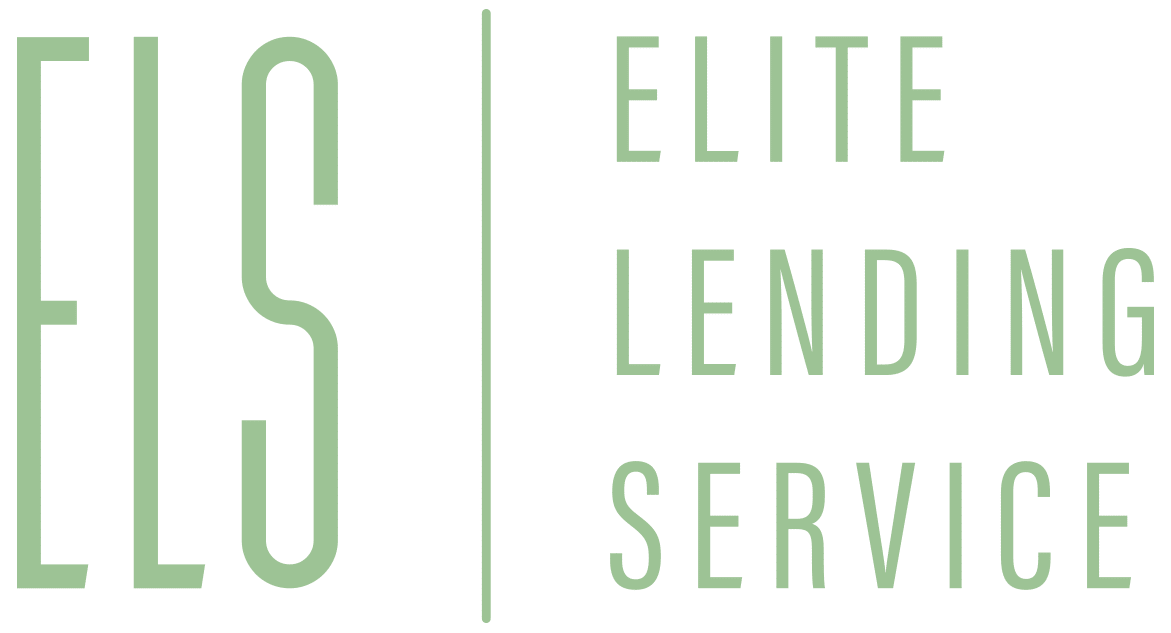Table of Contents
Ever wondered, “How Much Mortgage Can I Afford Based on My Income?” Or do you think your paycheck is the only number that counts? The truth is, deciding how big of a mortgage you can manage means checking out your whole financial picture—not just your income. You also need to consider any other debts, how much you have saved for a down payment, and usually a few other moving pieces. A fast way to get a sense of the limit is to plug your info into a mortgage affordability calculator first.
We’ll break down the mortgage affordability picture here. You’ll see the main parts that lenders will look at to figure out how much of a loan they’ll offer you. By the end, you’ll have a clearer idea of how borrowing costs stack up against your paycheck and your overall financial plan.
Key Takeaways
- The 28% rule recommends that the biggest part of your monthly mortgage payment should be no more than 28% of your income before taxes. Sticking to this guide keeps the answer to “What mortgage can I really afford?” clear and keeps you out of trouble.
- Your debt-to-income (DTI) ratio is a big factor lenders check to see the size of mortgage you can qualify for.
- Boosting your paycheck can open the door to a larger mortgage but sticking to the guideline is a safer choice.
- Making a bigger down payment can lower your monthly bill and may even let you skip mortgage insurance (PMI).
- A mortgage affordability calculator is a fast tool to figure out the right home price for your budget.
Understanding Mortgage Affordability
Finding out what share of your paycheck can go toward housing costs is one of the smartest moves you can make before buying a home. By figuring this out early, you can steer clear of money problems down the road. Try an online home loan calculator; just plug in your salary and regular expenses, and it gives you a quick snapshot of what you can realistically borrow.
What is Mortgage Affordability?
Simply put, mortgage affordability means the loan fits your budget and you won’t sweat paying it. Guidelines say you should ideally spend no more than 28% of your monthly income on housing. So, for a household earning $4,000 a month, the mortgage payment should stay below $1,120.
Also, lenders prefer your total monthly debts—mortgage, car loan, credit cards—to stay below 36% of your income. In the same $4,000 example, that means all debts should add up to less than $1,440.
Factors Affecting Mortgage Affordability
Several key factors can narrow or widen the range of home you can buy. Your income is obvious, but your credit score, local property taxes, and mortgage interest rate play a huge part too. A quick example shows why.
Suppose you’re looking at a $600,000 home. At 6% interest, the monthly payment would be around $2,878. But if interest rises to 7%, the same loan would likely cost $3,193 a month. Having a clear view of how all these pieces fit together helps you set a budget you can live with.
How Your Income Drives Mortgage Decisions
Your income is the heartbeat of the mortgage process. It helps determine not only whether you can get a mortgage, but also how much you can borrow and the shape of the entire mortgage journey. Because different types of income weigh the same, knowing how salaries, bonuses, and side income all count is the secret to smart, stress-free mortgage planning.
Income Sources Lenders Notice
When you fill out a mortgage application, lenders comb through several income sources before hitting “go.” Your regular pay stub is a must, but bonuses, overtime, and commission pay can raise the total number. If you own rental properties and receive steady rental income, add that to the list. Divorce settlements that come as regular alimony or child support also count, so gather that documentation, too. Presenting all these sources offers lenders the full snap-shot they need to jump to approvals.
How Lenders Tally Income to Check If You Will Qualify
To see if you qualify, lenders perform math on the income and the paperwork you hand them. They’ll ask for recent pay stubs, W-2 forms, and sometimes a couple of years of tax returns. As a guideline, they may allow mortgage payments that add up to 43% of your total current monthly income. That percentage arrives on the lender’s spreadsheet, but many financial folks recommend you keep the absolute monthly mortgage number at 28% or less of your main income. This keeps breathing space for utilities, groceries, and other bills. A little homework today means a smoother mortgage tomorrow, so take the time to understand how income rules shape the whole mortgage journey.

Debt-to-Income Ratio and Its Impact
Your DTI ratio is a quick way to figure out how much mortgage fits your budget. To find it, add up all your monthly debt—credit cards, car payments, and soon-to-be mortgage—then divide that number by your monthly gross income. If the total comes out to 36% or less, lenders see you as a safe bet. A lower ratio not only boosts your chance of approval but could also land you a lower interest rate.
What is Debt-to-Income Ratio?
DTI is calculated by taking your total monthly debt and dividing it by your gross monthly income. Many lenders prefer a DTI no higher than 36%. The 36% rule has two parts: the front-end ratio, which is housing costs that should be no more than 28% of your income, and the back-end ratio that includes all monthly debt, not exceeding 36%.
Calculating Your Debt-to-Income Ratio
Imagine you earn $6,000 a month. Your housing costs shouldn’t exceed $1,680 (28% of $6,000) and your total debt payments should be under $2,160 (36% of $6,000). If your actual monthly debts are $2,650, your DTI ratio is 44% (get that by dividing $2,650 by $6,000). If your DTI is higher than 36%, a lender might allow up to a 50% ratio if you have enough compensating factors, like a high credit score or extra savings. The lower your DTI, the more appeal your application has, making the loan process more straightforward and sometimes saving you money on the interest rate.
Credit Score’s Role in Mortgage Approval
Your credit score is the first number lenders check when you apply for a mortgage. They want to know how you’ve treated past credit—that means looking at when you pay bills, how much of your available credit you actually use, and which types of credit you’ve opened. While the basic rule is to have a score of at least 620 for most loans, if you can hit the 830 mark or higher, you could snag the very lowest rates.
Scores lower than 620 can lead to higher interest rates or even a denied application. If you’re curious about how your score changes your borrowing power, you can use a mortgage affordability calculator.
How Credit Scores Are Evaluated
When lenders review your mortgage application, they dig into your credit reports. They want to know the full picture, focusing on payment patterns, credit age, and the mix of credit types. Most conventional loans prefer scores above 620 for easier processing. Some government-backed loans, like those offered by New American Funding, let you start at a lower score, even 500, if you can afford a 3.5% down payment.
Keep in mind, applying for a mortgage does trigger a hard credit inquiry, which may drop your score a couple of points. The good news is that if you only get prequalified, the lenders use a soft inquiry, and your score stays the same.
Improving Your Credit Score for Better Rates
Taking steps to boost your credit score can save you a chunk of change over the life of your mortgage. Set a reminder to pay bills on time, aim to pay down your credit card balances, and review your credit reports for any inaccuracies that could drag your score down. Small changes can lead to a noticeably higher score and, ultimately, a more affordable mortgage.
Keeping an eye on your credit score is like having a GPS for your pocket—use it and you’ll steer straight toward that future home. Want more on this? Check out our Homebuyer’s Guide for all the extra tips.
Down Payments: What You Should Know
A down payment is the upfront cash you give on the house. Think of it as a deposit so you can move in later. Most lenders want you to pay between 3% and 20% of the house’s price. The larger the down payment you can bring, the smaller the monthly check you’ll write later. Plus, the cash-saving bonus is that you may skip private mortgage insurance, called PMI. That’s hundreds of dollars saved each month.
Standard Down-Payment Options
New homeowners usually target a down payment of 5% to 10%, but the ideal is 20%. Let’s run some numbers. If the house costs $400,000, a 20% down payment is $80,000. That upfront payment trims your monthly mortgage and leaves you with more money for other bills—super smart budgeting, right? Always double-check that your mortgage payment fits in your monthly budget after you account for your salary and other costs like taxes and insurance.
Programs for First-Time Buyers
Starting can be the hardest part, but loans are designed to give you a break. FHA loans want you to pay just 3.5% down. There are also state and local grants, healthy credit also comes in handy so door number 3 is easier to go through. Try a home loan eligibility calculator. Plug in your income, credit score, and other numbers, and it’ll show you the best mortgage match for you.

Advantages of Going with a Mortgage Broker
Team up with a mortgage broker, and getting a loan for a house might be a breeze instead of a battle. These folks know the ropes and can trim the complicated process down to size for most borrowers.
Since brokers track tons of loan programs and keep the doors open with many banks, they can hunt down the right rate that fits your budget. Think of them as your personal loan GPS, rerouting you to the deals that make the most sense.
Expert Guidance Anytime
No one sees the inside of a loan kitchen more than a broker. They’ve cooked the recipe for borrowers with tricky credit, thin savings, or only a small down payment. Their insight helps you get the green light on pre-approval without a ton of bumps.
They double-check that your income plus the future mortgage equals a safe ratio. That keeps your application from getting sidetracked and you one step closer to the front door you want.
Tailored Money-Saving Solutions
A broker gets to know your goals and can put together a couple of loan mixes you can understand. They’ll explain the terms, and before you know it, that complicated menu makes sense.
The power of a broker isn’t just the talk; data show you could pocket $600 to $1,200 more every year just from the loan shopping they do for you. Getting the right income to mortgage calculation is the secret ingredient to financing that fits you. Want the full scoop on scoring the right broker? Check out this handy guide!
How to Make Your Mortgage Work for You
Getting the biggest mortgage isn’t the end goal; getting the best mortgage is. The best way to start is to create a careful budget. Your budget should show how much of your take-home pay can cover a new mortgage. A smart rule of thumb is to keep the mortgage payment to no more than about 25% of your take-home pay.
Let’s say your household brings in $6,000 a month. A payment of $1,500 is within the 25% mark, meaning that’s the maximum you should plan to pay. Sticking to that rule helps keep your finances in one piece and protects you later when unexpected costs pop up.
Budget for the Whole Mortgage Picture
When your budget lists that $1,500 payment, it’s only part of the picture. Don’t forget the everyday costs of home ownership: utilities, property taxes, insurance, upkeep, and that small repair that always seems to show up. By listing all the costs, you can tell how much you can really budget toward the mortgage loan itself.
Most lenders follow the 28/36 rule: your mortgage payment caps at 28% of your income, and all your monthly debt payments—including the mortgage—should not go over 36% of monthly income. Stay within those limits, and you stand a better chance of getting the mortgage you want and keeping your bottom line healthy.
Saving for Closing Costs
Closing costs are a must-have item on your home-buying checklist. They usually add up to about 3% to 6% of the home’s purchase price. If your target is a $400,000 house, that could mean stashing away between $12,000 and $24,000.
Don’t overlook additional costs either. Inspections and appraisals, both of which confirm the home is in good shape, also need to go into your budget. A line-by-line budget gets you comfortable with what you’ll actually owe. The clearer your picture, the easier the monthly mortgage becomes.
Tools That Make It Easy
Stop guessing—plug your income, debts, and interest rate into a mortgage affordability calculator. This handy tool tells you exactly how much mortgage you can handle. That way, you can nail down your budget before you even start touring houses. Getting a clear number helps you focus on the homes you can really afford.
Mortgage Calculators
Plugging numbers into a mortgage calculator helps you see what is realistic. They can tell you how much house you can carry. If your annual salary is $80,000, for instance, your target monthly housing payment could land near $1,867.
Pre-Qualification vs. Pre-Approval
Get familiar with the difference between pre-qualification and pre-approval. Pre-qualification offers a ballpark figure based on a few quick questions. Pre-approval, however, digs much deeper into your finances, running a credit check and verifying income. That step is what gets you in the door with lenders when you finally find the right house.
Using a home loan eligibility calculator gives you a clear picture of what lenders expect, so you can keep home buying on track and avoid costly delays.
Kick-Start Your Journey with Elite Lending Service
Finding the best mortgage is a big piece of the home-buying puzzle. Elite Lending Service, Inc. in Jacksonville, FL, delivers step-by-step mortgage help. Owner Brad Bailey brings over 20 years of mortgage know-how and offers plain-spoken advice that helps you see your financial snapshot in a way you can easily grasp.
Check out their mortgage affordability calculator to understand how your paycheck lines up with monthly mortgage costs. This quick tool gives you a head start on smart, confident choices.
Why Go with Elite Lending Service?
Elite Lending Service shines in customer care, boasting an 82% satisfaction score, which helps clients know they’re in good hands. Their wide network of lenders means you can explore more mortgage deals. More deals equal better chances of landing strong terms.
Whether it’s your very first home or your current loan needs a refresh, Elite’s team can speed up your journey. Learning about your choices ahead of time is smart; even a tiny dip in interest rates can keep thousands of dollars in your pocket over the loan’s life.
Connect for Expert Lending Help
Thinking about buying a home or refinancing your current mortgage? Call Elite Lending Service! You can reach them at (904) 263-0376 or email brad@elitelendingservice.com. The friendly team is excited to guide you through custom mortgage options that fit your financial situation. Get professional advice today to make your mortgage journey smoother!

